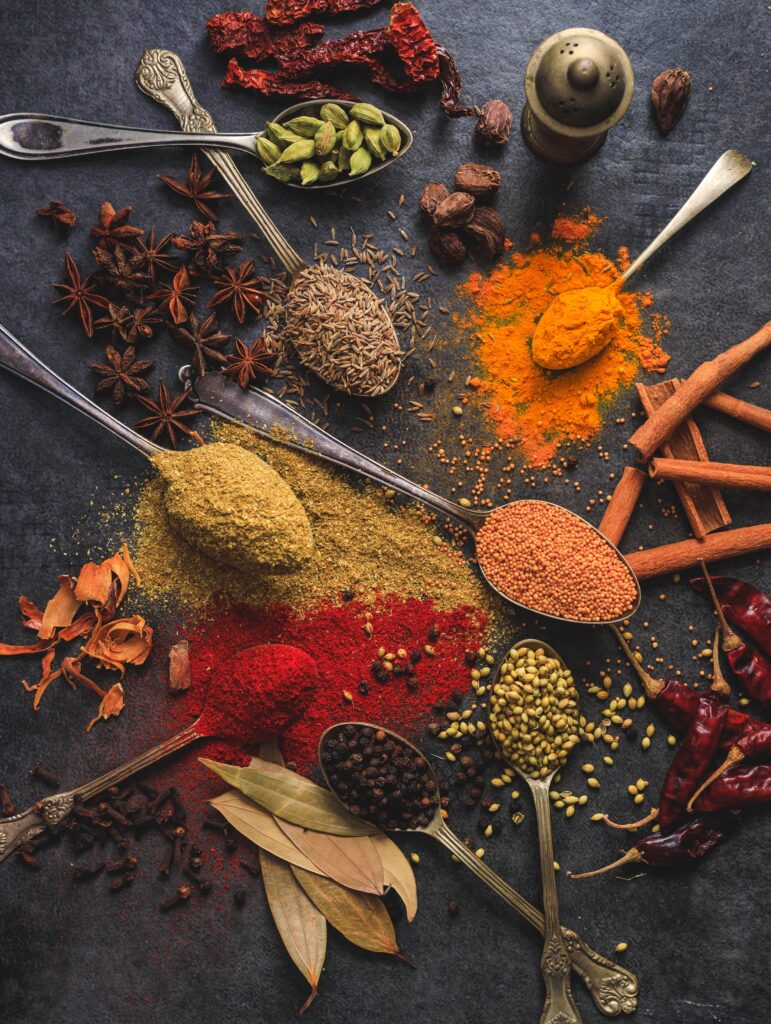
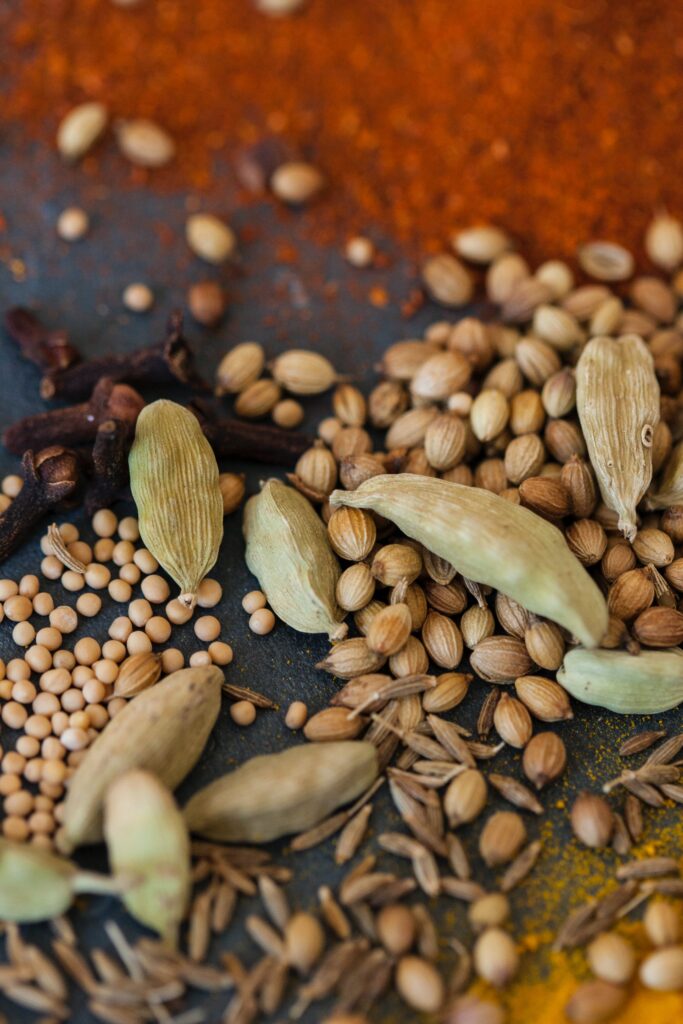
Table of Contents
Introduction:
Ayurveda, an ancient system of natural healing that originated in India thousands of years ago, places significant emphasis on the use of Indian spices for health benefits. Indian Kitchen spices are rich in anti-inflammatory and antioxidants. Here are some commonly used Indian spices along with their health benefits according to Ayurveda.
Indian Spices and Their Healing Powers:
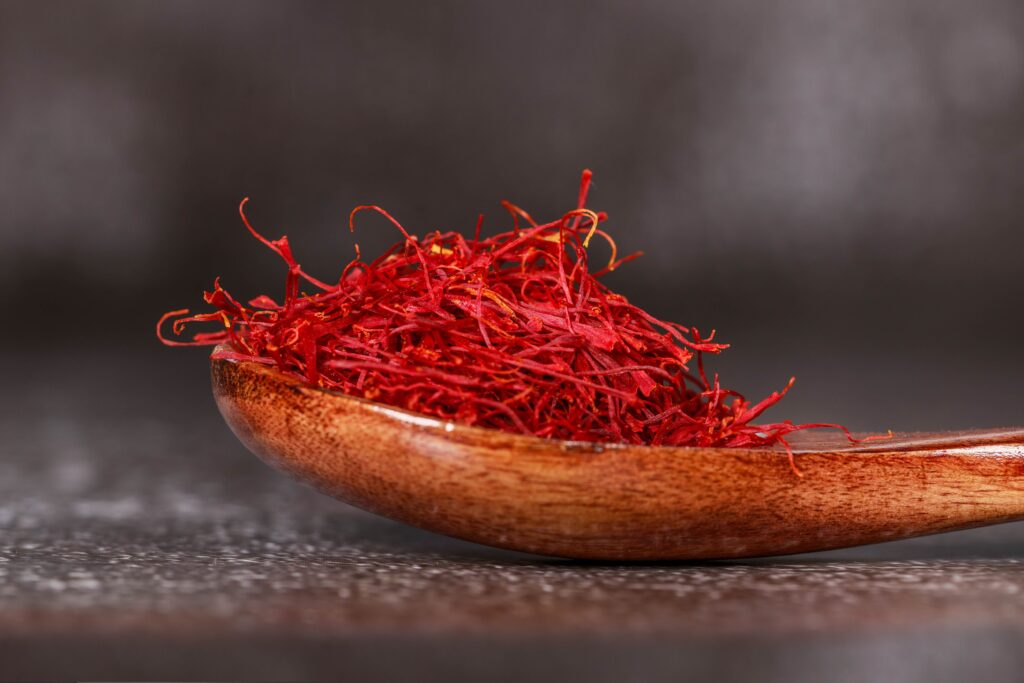
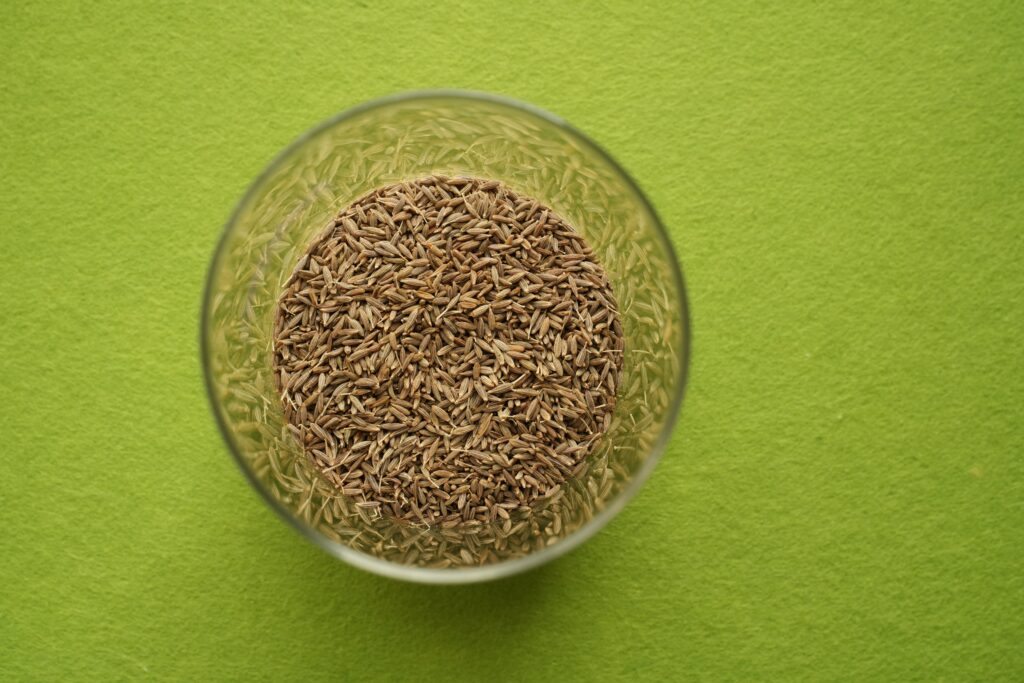

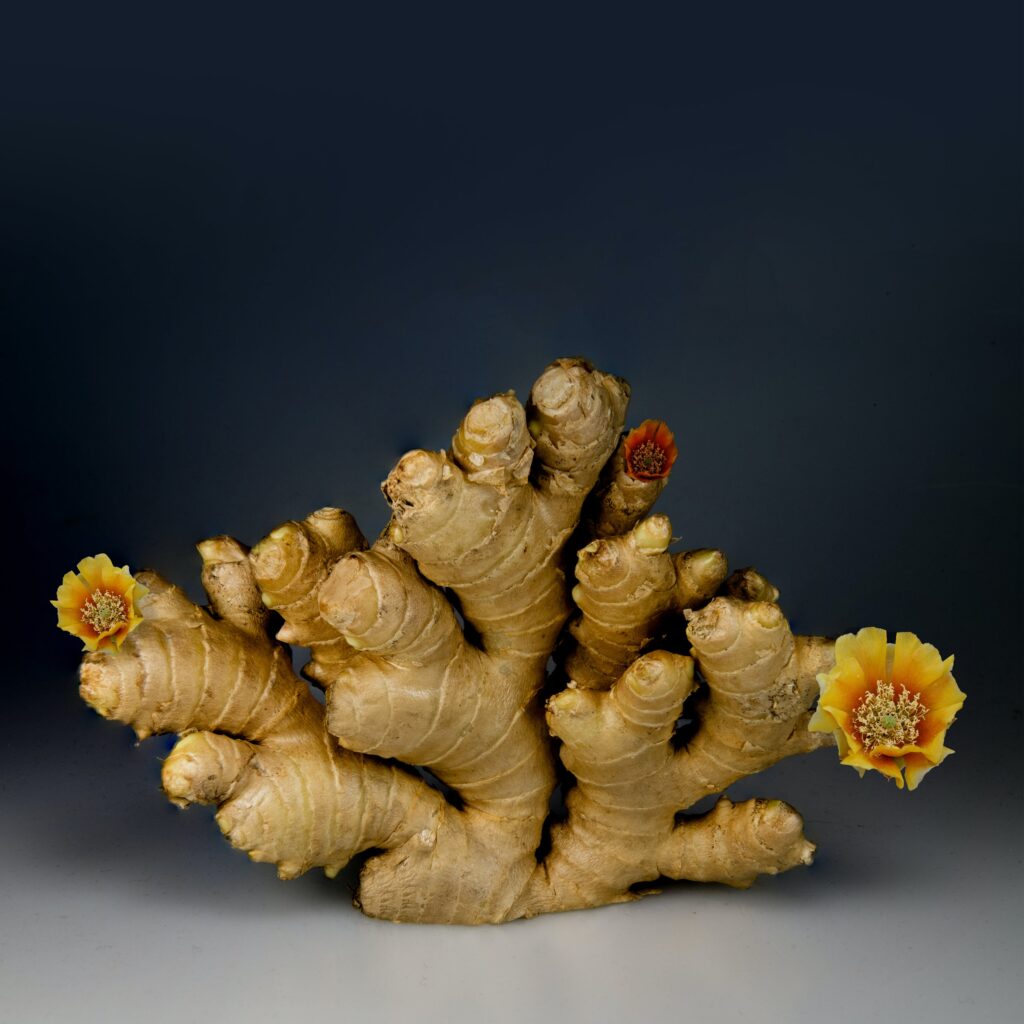

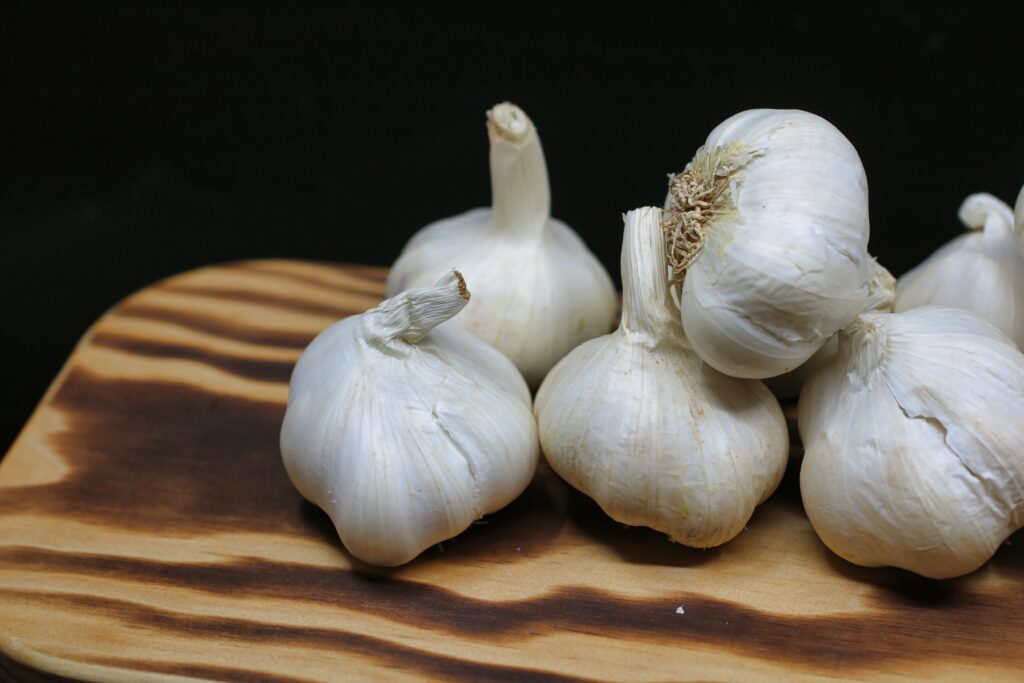
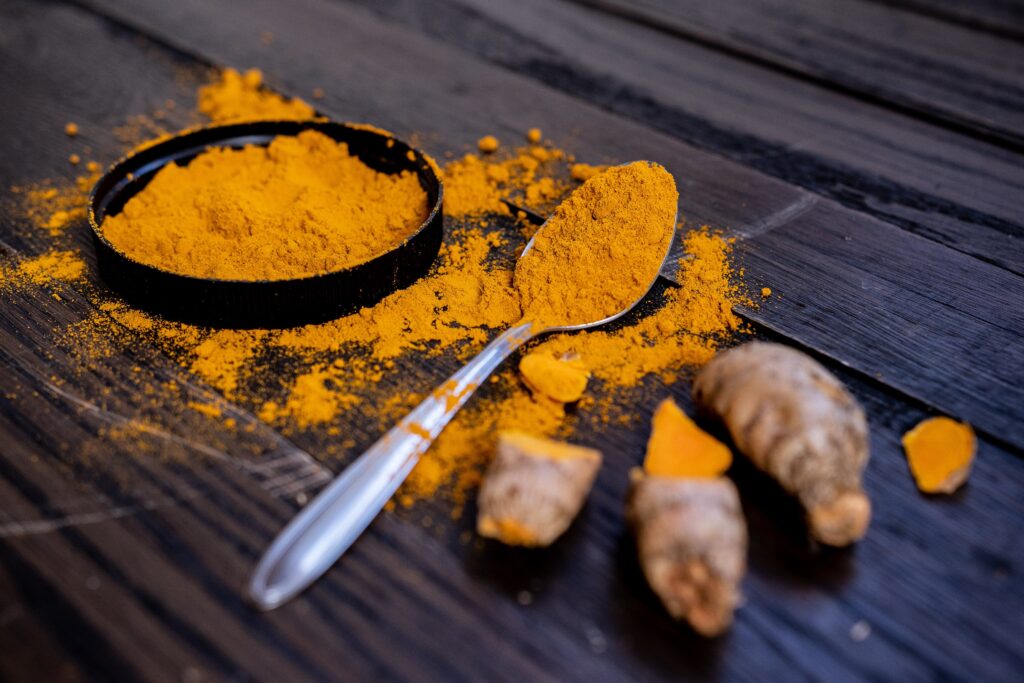
- Turmeric (Haldi):
- Health Benefits: Turmeric is known for its powerful anti-inflammatory and antioxidant properties. It’s used to support joint health, improve digestion, boost the immune system, and promote healthy skin.
- Active Compound: Curcumin is the key bioactive compound responsible for turmeric’s health benefits.
- Cinnamon (Dalchini):
- Health Benefits: Cinnamon is believed to aid digestion, regulate blood sugar levels, and help manage conditions like diabetes. It’s also considered warming and stimulating, which can improve circulation.
- Active Compounds: Cinnamaldehyde and cinnamic acid contribute to its health-promoting properties.
- Ginger (Adrak):
- Health Benefits: Ginger is a potent digestive aid, helping to reduce bloating, indigestion, and nausea. It’s also known for its anti-inflammatory properties and can be used to support joint health.
- Active Compounds: Gingerol is the primary bioactive compound in ginger.
- Cardamom (Elaichi):
- Health Benefits: Cardamom is considered a digestive tonic in Ayurveda. It’s used to alleviate indigestion, bloating, and gas. It’s also known to freshen breath and cool the body.
- Active Compounds: The essential oils in cardamom, particularly cineole, contribute to its health benefits.
- Cumin (Jeera):
- Health Benefits: Cumin is known for its digestive benefits. It can help relieve gas, bloating, and improve overall digestion. It’s also considered to have detoxifying properties.
- Active Compounds: Cuminaldehyde is the primary compound responsible for cumin’s aromatic and therapeutic properties.
- Coriander (Dhania):
- Health Benefits: Coriander seeds support digestion and can help alleviate digestive disorders. They are also known for their cooling properties and can be beneficial in reducing inflammation.
- Active Compounds: Linalool and coriandrin are some of the key components in coriander seeds.
- Fenugreek (Methi):
- Health Benefits: Fenugreek seeds are known for their blood sugar-regulating properties. They can also help improve digestion and support lactation in nursing mothers.
- Active Compounds: Saponins, trigonelline, and diosgenin are some of the bioactive compounds in fenugreek.
- Cloves (Laung):
- Health Benefits: Cloves have antimicrobial properties and can be used for dental health. They are also known to support digestion and help alleviate respiratory issues.
- Active Compounds: Eugenol is the primary compound in cloves responsible for its therapeutic properties.
- Garlic:
- Health Benefits: Known for its immune-boosting properties and potential to help lower blood pressure and cholesterol levels.
- It may also have antimicrobial and anti-inflammatory effects.
- Black Pepper:
- Health Benefits: Absorption of nutrients, Cough mucus relief
- Active Compounds: Contains piperine, which may enhance the absorption of certain nutrients and has potential anti-inflammatory properties.
- Saffron:
- Health Benefits: Known for its potential antioxidant and mood-enhancing properties. It has been studied for its potential in managing mood disorders.
- Carom seeds:
- Health Benefits: Digestive Aid, Relief from Acidity, Anti-inflammatory: Carom seeds have anti-inflammatory properties that may help alleviate inflammation in the digestive tract and ease symptoms of conditions like irritable bowel syndrome (IBS), Relief from Menstrual Cramps, Respiratory Health, Aid for Skin Conditions, Blood Pressure Regulation, Aid for Skin Conditions, relives Joint pain.
- Active compound: They contain thymol, which helps in the secretion of gastric juices, thereby aiding digestion and relieving indigestion, flatulence, and bloating. Carom seeds have anti-inflammatory properties.
Home Remedies for common health issues:
Here is the list of Indian Spices and there benefits to treat many common issues at home:
| INDIAN SPICES | HEALTH ISSUES | TREATMENT |
| Turmeric (Haldi) | Arthritis, heart disease, and certain types of cancer. | Add to warm milk or include in food intake |
| Cinnamon (Dalchini) | Improve insulin sensitivity-Diabetes | Cinnamon powder can be included in food intake. Make cinnamon tea and use it in cakes. |
| Ginger(Adrak) | Nausea, Reduce muscle pain, and support digestion, arthritis. | Take it raw or roast on flame have it with little salt. Include in food ginger tea and curry, breakfast. |
| Cardamom (Elaichi) | Support digestion, breath freshener. Blood pressure and cholesterol management. | Take it along Tea and food intake |
| Coriander (Dhania) | Support digestion and reduce inflammation. | Include in food intake in powder form |
| Fenugreek (Methi) | Regulate blood sugar levels-Diabetes, Support Digestion | Soak for overnight and take it along with water |
| Cloves (Laung) | Dental health | Put 2 cloves in the area of teeth where there is pain, chew it slowly. Apply clove powder or clove oil directly on effected area |
| Saffron(Kumkumpuvvu) | Managing mood disorders | Have it with food and milk |
| Black Pepper(Kaali mirch) | Absorption of nutrients, Cough mucus relief | Make it powder form and include in food intake. Boil milk with pepper powder and have it |
| Garlic(Velluli) | Lower blood pressure and cholesterol levels | Include in food intake, roast them and have it |
| Cumin(Jeera) | Digestive benefits, indigestion, bloating, and gas | Take raw or boil in water for 5min and have it. Include in food intake |
| Carom Seeds(ajwain) | Relief Cough, Improve Digestion | Take raw or boil in water for 5min and have it. Include in rasam |
| Bay leaf | Digestive Aid, Diabetes management, Hair health, respiratory problems, prevent cancer, | Have it in tea and food intake. Take it in moderation-high dose may trigger diarrhea |
NOTE: Caution, take right amount of spices, its Hazzard to have high dose.
Conclusion:
These Indian Spices are typically used in various combinations in Indian cuisine, and their health benefits are enhanced when consumed as part of a balanced diet. Remember, it’s always a good idea to consult a healthcare professional or an Ayurvedic practitioner before making significant changes to your diet or lifestyle based on Ayurvedic principles.
Remember, before using Indian Spices or any other natural remedy for disease treatment, it’s crucial to consult with a healthcare professional or an expert in herbal medicine. They can provide guidance on safe and appropriate usage, especially if you have existing medical conditions or are taking medications.
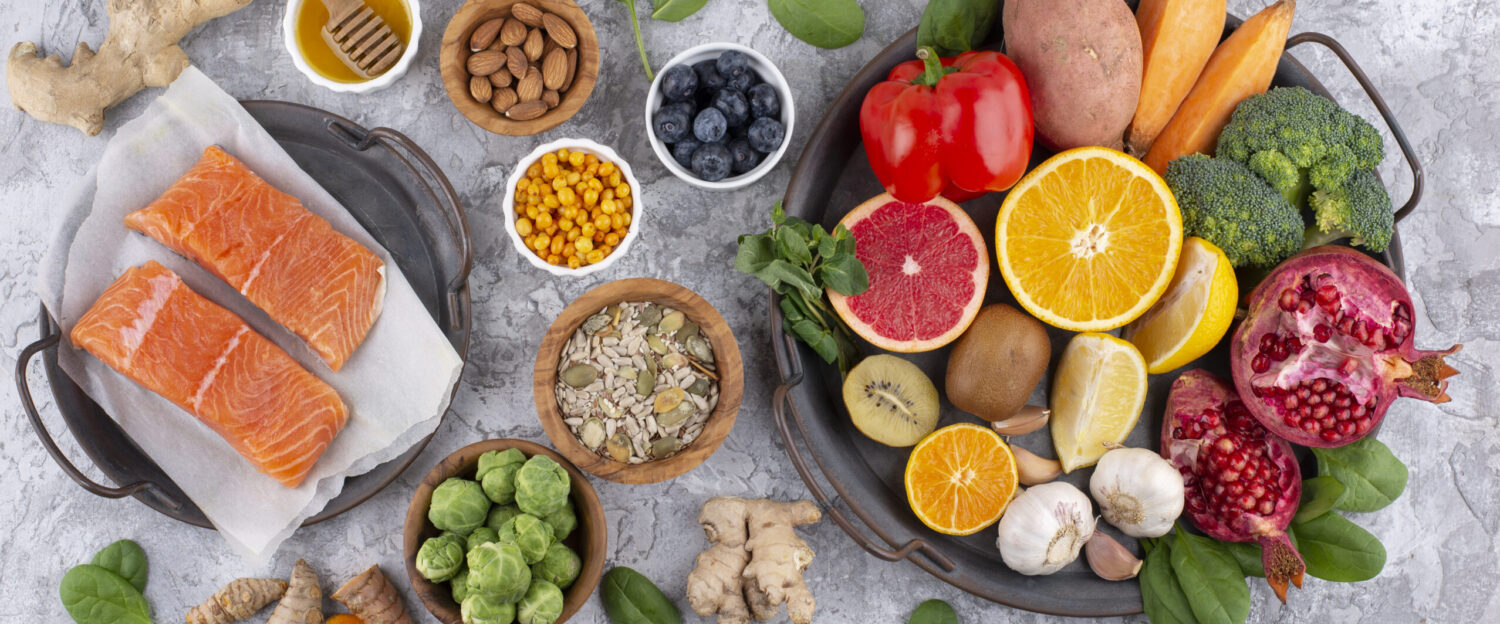
Thanks for posting. I really enjoyed reading it, especially because it addressed my problem. It helped me a lot and I hope it will help others too.
Brilliant!